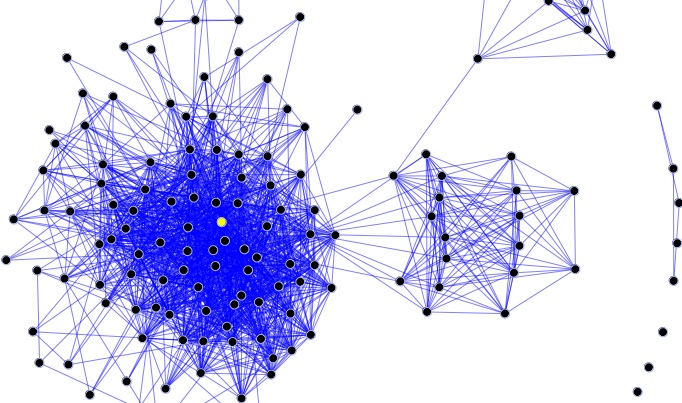The relationship between social science and race has always been complicated. At the turn of the 20th century, social science was used to support the eugenics movement and justify racial inequalities. Yet social-science data was also instrumental in advancing desegregation, for example by supporting the argument in favor of school desegregation in Brown v. Board […]
Research Team
Climate Change Economics Roundtable
The field of economics plays a crucial role in the debate about appropriate policies intended to mitigate climate change. For example, the tools of economics can be used to measure and/or estimate impacts such as the costs of mitigation, the valuation of damages, the role of abatement in lowering damages, design of policy instruments (e.g. […]
Research Team
Global Studies at UC Berkeley
A new interdisciplinary major Global Studies is planned as part of a major restructuring of the International and Areas Studies Teaching Programs (IASTP) at UC Berkeley. In Fall 2015, Social Science Matrix is funding a prospecting seminar dedicated to bringing together faculty and graduate students from a wide range of departments and professional schools to […]
Research Team
Data Science and Climate Change
Quantifying the social and economic impacts of climate change can be a challenging and technical process, but measuring these effects is critical to designing global and national climate policies. This challenge was taken up by a Social Science Matrix seminar during Summer 2015, as researchers and students from diverse disciplines met to determine how modern […]
Research Team
Human Rights and the University
In Fall 2015, Social Science Matrix is sponsoring a semester-long prospecting seminar on “Human Rights and the University.” The seminar is organized by the Human Rights Program (HRP), a program established in 2010 as an extension of the Human Rights Interdisciplinary (HRI) Minor that promotes interdisciplinarity and undergraduate research and education through a postdoctoral fellowship, […]
Research Team
Metaphor, Across Data Sets and Methodologies
In Fall 2015, Social Science Matrix will launch a new seminar focused on “metaphor studies,” a field that traces its modern origins to the UC Berkeley campus in 1980, when George Lakoff and Mark Johnson published Metaphors We Live By, thereby launching a wave of interdisciplinary studies on metaphor, language and cognition. “We know a […]
Research Team
A Polarizing Europe
The term “extremism” has been used often in the context of Europe over the past few years, from religious extremism that fuels terrorism and hate crimes to the movement of Europe's political parties toward the "extremes" of right and left. Indeed, the rise of "extremism" is a reflection of the upheaval in Europe broadly and […]
Research Team
Re-Representing the Earth Through Landscape, Infrastructure, and Data
How does technology demand a quantitatively driven representation of the earth? How has the increased capacity for technology to store and process data transformed the earth and our ideas about it? What destiny does so-called “Big Data” hold for the myriad crises of the earth? In Fall 2015, Social Science Matrix is sponsoring a research […]
Research Team
Social Death: Race, Risk, and Representation
First coined in 1985 by sociologist Orlando Patterson in his text Slavery and Social Death, the phrase “social death” refers to the condition of people not accepted as fully human by wider society. Patterson uses the term in relation to the “imprintable and…disposable status” of the slave, and the expression has since been applied by […]
Research Team
Superintelligence
In Fall 2015, Social Science Matrix will sponsor a seminar that will bring together presenters from diverse social sciencse, including economics, political science, and sociology, as well as humanities and technology disciplines, to reflect upon “superintelligence." Superintelligence refers to biological or artificial (or hybrid) agent(s) capable of general purpose intelligence beyond that of the smartest […]
Research Team
Work and Politics in the Digital Era
What does it mean for our economy—and society at large—that workplaces are increasingly becoming “virtual”? What are the implications for the labor market when computer-driven algorithms are in charge of hiring decisions, or when service employees are at risk of losing their jobs if their customer rating falls too low? In Fall 2015, Social Science […]
Research Team
Prosopography: Toward a Toolkit
In Fall 2015, Social Science Matrix will be launching a year-long research seminar focused on “Developing Tools and Collaborations in Prosopographical and Historical Social Network Research Environments”. While its name might be a mouthful, this seminar—a continuation of a 2014 Matrix prospecting seminar—has a goal to develop “research toolkit” that will help faculty, staff, and […]











